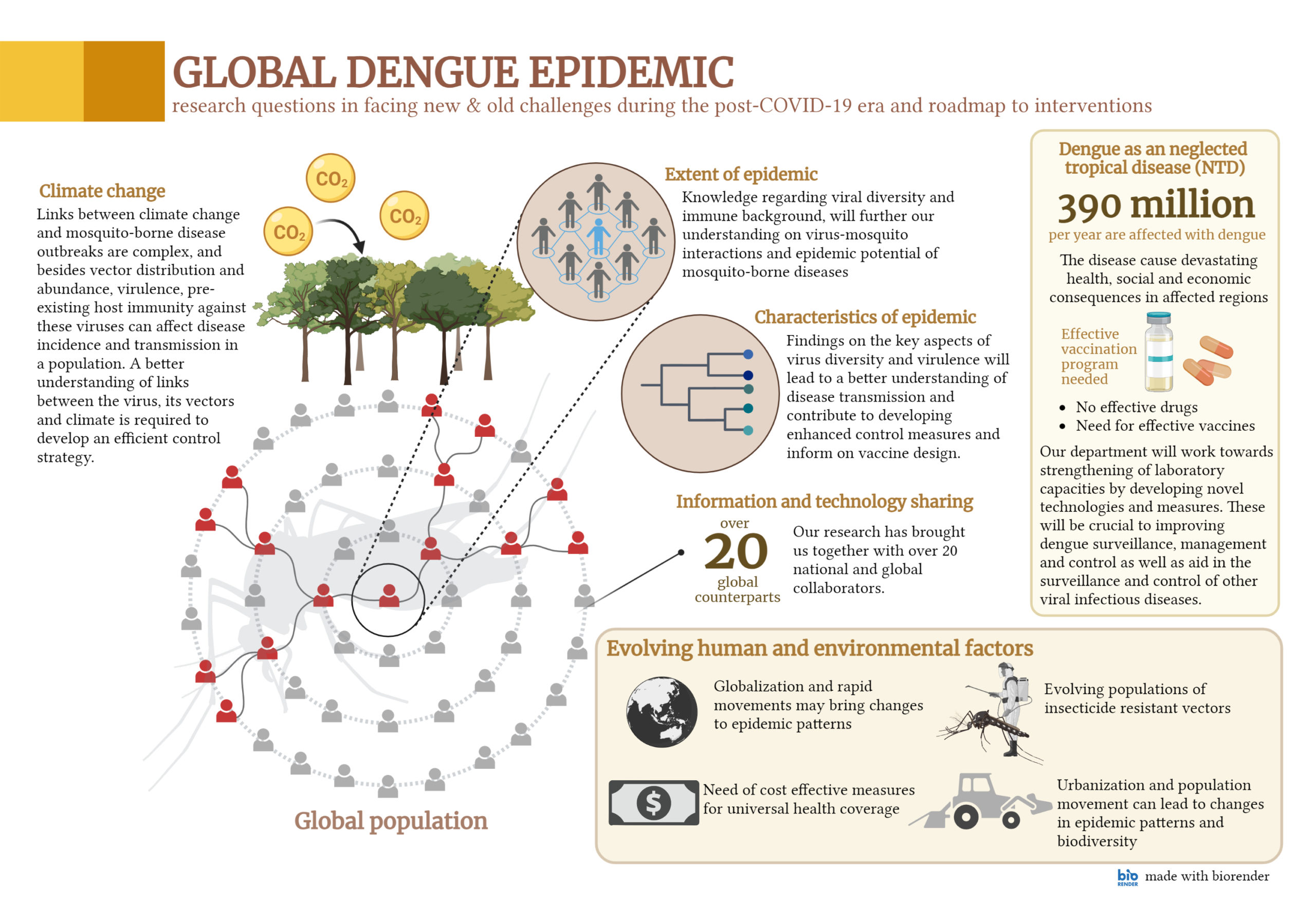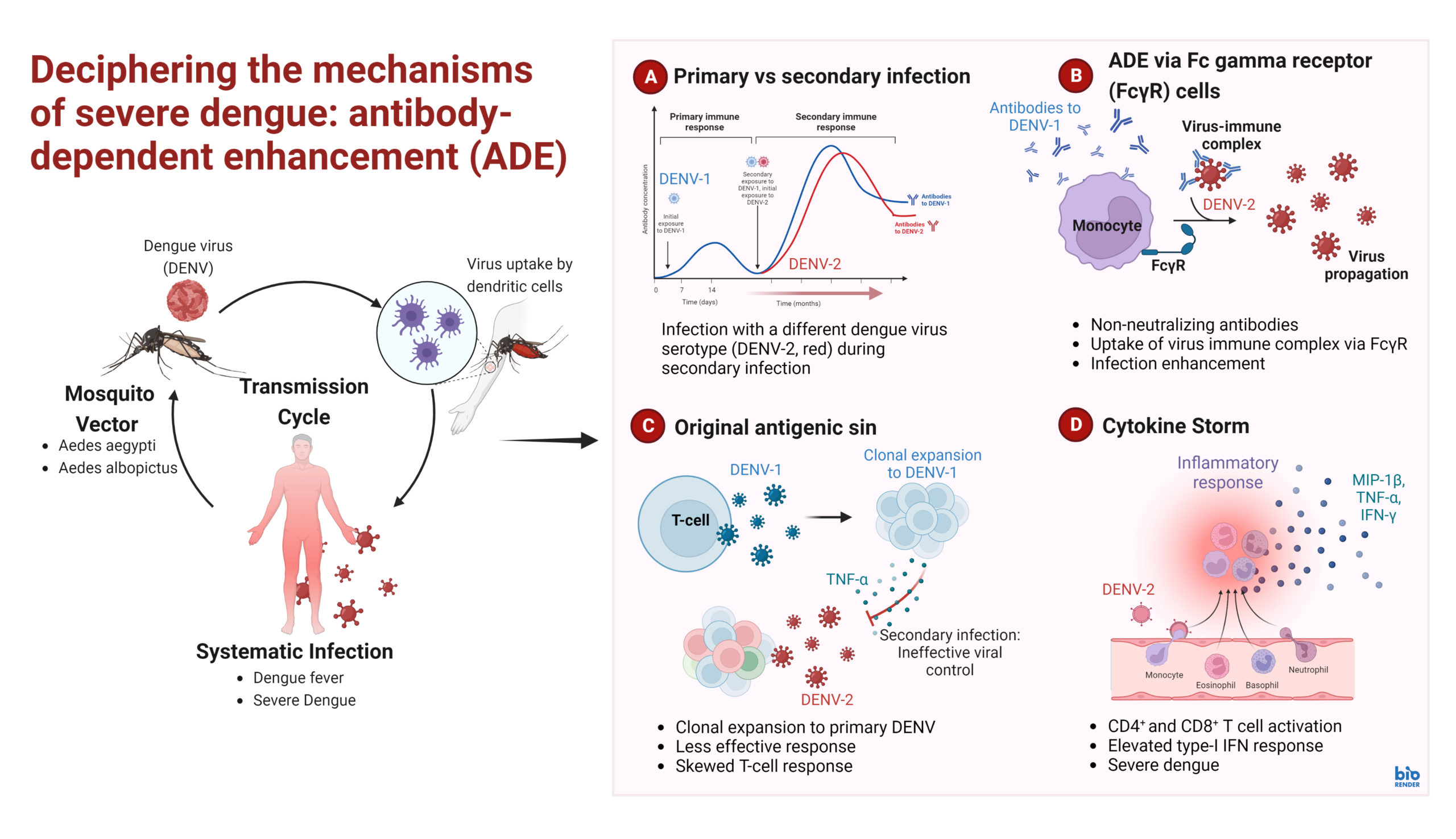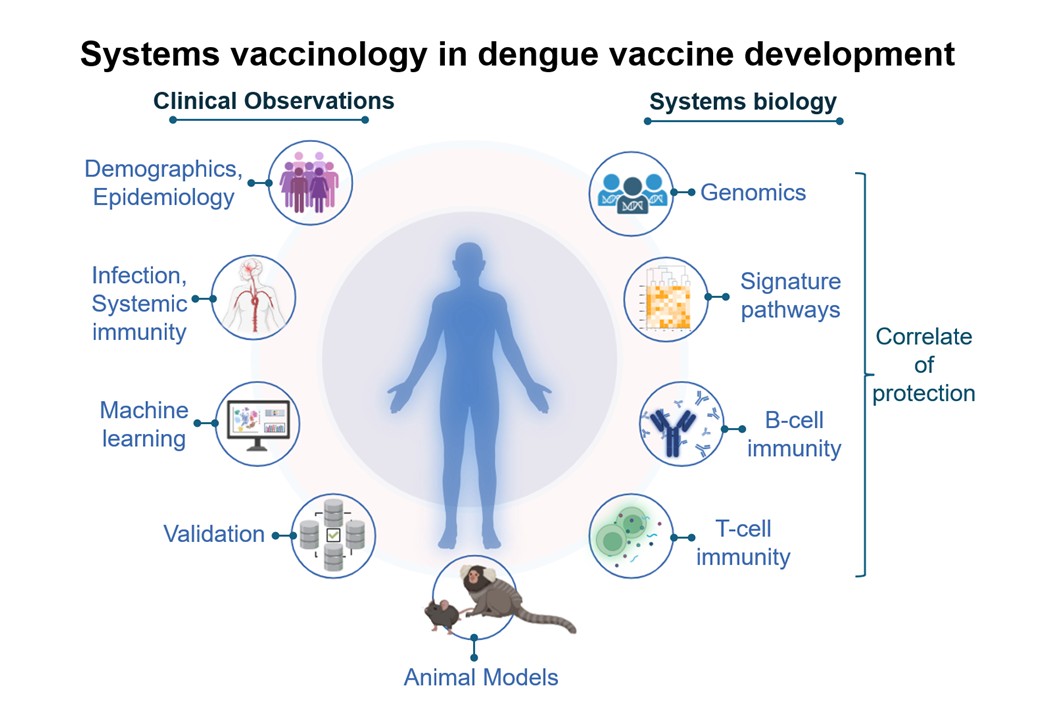Research Outline
Our department conducts epidemiological studies on the etiology (genetic and environmental factors), pathogenesis, prevention and treatment of viral infections, child development specific conditions (congenital and acquired), from the standpoints of international health science, molecular virology, immunology and neuroscience, with research and education goals for the development of measures that contributes to the improvement of maternal-child health and public health in general.At our Department, Professor Moi Meng Ling began research on dengue fever, Zika fever, and related vaccine studies under the supervision of former Director Ichiro Kurane of the National Institute of Infectious Diseases. During her tenure as Associate Professor, and later promoted to full Professor, at the Institute of Tropical Medicine at Nagasaki University, she further developed her research in the field of arboviruses, with focus on Dengue, Zika, Japanese Encephalitis epidemiology and immune response during infection and vaccination.
Furthermore, Professor Moi independently developed 'Antibody-Dependent Enhancement (ADE) assay,' a method used to analyze antibodies function during virus infection. This assay is currently being utilized in vaccine development by major research institutions both within and outside of Japan, including Japan Institute for Health Security (National Institute of Infectious Diseases), the Institute of Tropical Medicine at Nagasaki University, Vietnam, and Malaysia, marking a new contribution for Japan and the international community.
Her achievements has led to her receiving the Sugiura Encouragement Award from the Japanese Society for Virology and, the President's Award from the Japan Agency for Medical Research and Development (AMED), making her research achievements publicly recognized in Japan.
She the established her laboratory at the Department of International Health, Division of International Biomedical Sciences and Developmental Medical Sciences, at the Graduate School of Medicine, The University of Tokyo, in continuation of her research in the field of Dengue, Zika and arbovirus control.
In 2022, the Japanese government established the Japan Agency for Medical Research and Development (AMED) Advanced Research & Development Strategy Center (SCARDA) to form a world-class research and development hub for vaccine development.
At The University of Tokyo, a national university corporation, SCARDA has establised the flagship research hub for world-class research and development, The University of Tokyo Pandemic Preparedness, Infection and Advanced Research Center (UTOPIA).
Under the leadership of Director Yoshihiro Kawaoka, a globally recognized leading scientist in virology, Professor Moi Meng Ling was appointed (concurrently) as the senior researcher for vaccine research on dengue fever and Zika fever. Together with the team of scientists in UTOPIA, our department aims in further researching on the pathogenesis, prevention, and treatment of Dengue and Zika pathogenesis and vaccine development.
Research Themes
Epidemiological and virological studies
Together with our collaborators from Vietnam, Thailand, Malaysia, the Philippines, Indonesia and Myanmar, our department conducts mosquito-borne virus cohort studies and research on viral and host-immunological factors that affect outbreaks.Through a better understanding of transmission dynamics and our immune response to infection, these research output allows the identification of key biological signatures according to disease severity, regional characteristics and individual variability, which will lead to better clinical management and control strategies.
Featured Publications:
- Sano Y, Al-Alawi H, Himeno M, et al Assessment of flavivirus RNA stability and infectivity in various water environmentsTrop Med Health 2025;53(1):11.
- Prajapati S, Elong Ngono A, Mc Cauley M, et al. Genomic sequencing and neutralizing serological profiles during acute dengue infection: A 2017 cohort study in Nepal.PLOS Glob Public Health. 2024;4(11):e0002966
- Rahmasari R, Raekiansyah M, Aliyah SH. et al Development and validation of cost-effective SYBR Green-based RT-qPCR and its evaluation in a sample pooling strategy for detecting SARS-CoV-2 infection in the Indonesian setting. Sci Rep. 2024;14(1):1817

Virus-host interactions and pathogenesis studies
Dengue remains a major public health treat globally. As the patterns of circulation of dengue virus serotypes across regions are linked to cross-reactive immunity in the population, understanding viral outbreaks in a region requires knowledge regarding immune response to other flaviviruses and dengue virus serotypes.At our department, we define the mechanisms of cross-reactive immunity during dengue, Zika, Japanese encephalitis and flavivirus secondary infection, with aims to determine the mechanisms behind pre-existing immunity in protection or pathogenesis and influences viral evolution during infection. This knowledge is critical for developing and deploying flavivirus vaccines and anti-viral therapeutics in an increasingly flavivirus-experienced world.
Featured Publications:
- Haga K, Chen ZN, Himeno M, et al. Utility of an In-Vitro Micro-Neutralizing Test in Comparison to a Plaque Reduction Neutralization Test for Dengue Virus, Japanese Encephalitis Virus, and Zika Virus Serology and Drug Screening. Pathogens. 2023;13(1):8.
- Nakamura Y, Moi ML, Shiina T, et al. Idiotope-Driven T-Cell/B-Cell Collaboration-Based T-Cell Epitope Prediction Using B-Cell Receptor Repertoire Sequences in Infectious Diseases. Viruses. 2023;15(5):1186.
- Nguyen TTN, Choo EM, Nakamura Y, et al. Pre-existing cross-reactive neutralizing activity against SARS-CoV-2 and seasonal coronaviruses prior to the COVID-19 pandemic (2014-2019) with limited immunity against recent emerging SARS-CoV-2 variants, Vietnam. Int J Infect Dis. 2024;139:109-117.
- Muraoka D, Moi ML, Muto O, et al. Low-frequency CD8+ T cells induced by SIGN-R1+ macrophage-targeted vaccine confer SARS-CoV-2 clearance in mice. NPJ Vaccines. 2024 ;18;9(1):173..
- Thoresen D, Matsuda K, Urakami A, et al. A tetravalent dengue virus-like particle vaccine induces high levels of neutralizing antibodies and reduces dengue replication in non-human primates. J Virol. 2024;98(5):e0023924.
- Taniguchi S, Maruyama J, Saito T, et al. Development of reverse genetics system for Guanarito virus: substitution of E1497K in the L protein of Guanarito virus S-26764 strain changes plaque phenotype and growth kinetics.J Virol. 2024;98(2):e0196423
- Ana-Sosa-Batiz F, Verma SK, Shafee N, Miller R, et al. A humanised ACE2, TMPRSS2, and FCGRT mouse model reveals the protective efficacy of anti-receptor binding domain antibodies elicited by SARS-CoV-2 hybrid immunity. EBioMedicine. 2025;113:105619.
- Development and evaluation for flavivirus diagnostics
- Host immune response during emerging and re-emerging viral infection
- Contribution of host factors during disease protection or pathogenesis
- Flavivirus vaccine and therapeutics development and evaluation
- Development and evaluation of animal and in-vitro disease models
- Antibody-dependent enhancement mechanism during dengue and flavivirus infection
- Viral infectious disease field and epidemiological studies
- Maternal-child infection and congenital disorders
- Communicable diseases surveillance for maternal-child healthcare and global public health issues, informed decision and policy-making

Research on development of diagnostics, vaccines and therapeutics against viral infectious diseases
Our Department investigates the immunology and pathogenesis of flaviviral infections by developing biologically relevant in-vitro and in-vivo models. In collaboration with academic and industrial counterparts, our department also conducts studies on the development of diagnostics, vaccines, and therapeutics for emerging and re-emerging infectious diseases, including dengue, Zika, Chikungunya, and Japanese encephalitis viruses.Our group was the first in Japan to develop in-vitro and in-vivo models to study dengue and Zika infections and to advance vaccine development using Fc-gamma receptor (FcγR)-expressing cells and non-human primates, specifically marmosets. In collaboration with local and international partners, we have investigated the antibody-dependent enhancement (ADE) effect using clinical samples and animal models. Our goal is to elucidate how immunity in dengue and Zika infections modulates disease manifestations and to identify pathological and protective signatures during infection and vaccination.
Featured Publications:





